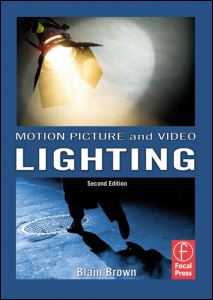![]()
Spring 2018 PREVIEW
This intermediate-level course provides a hands-on experience in lighting for video through the exploration and application of several tools and techniques. The foundation principles of light are introduced and then manipulated to see the affect that direction, type, perceived color, color temperature, shape, and texture have to construct the desired ambiance of a scene.
Safety issues in regard to set construction and electricity available in the studio or on location are addressed, along with several other topics consistent with improving one's ability to communicate effectively with crew, and using lighting in video productions.
During this course students also have the opportunity to become more proficient with the mechanical aspects of the video camera systems available in the WCC Video Lab. A variety of assignments are to be completed in a studio environment, and on location, with an objective to create motion pictures that convey ideas to the viewing audience.
Course Objectives
By the end of the semester, students will...
• Obtain a working knowledge regarding the control of color temperature of various light sources and how they directly relate to the white balance setting in camera.
• Critically examine compositional and lighting elements necessary to produce successful portraiture for interviews, documentaries, or dramatic performance scenarios.
• Critically examine the lighting and compositional techniques implemented in various media such as films, paintings, and still photographs, with an emphasis on revealing the basic principles of design and gestalt psychology.
• Understand critical video-industry tools, techniques, and work related skills.
• Demonstrate proper handling of lighting set-up and set-strike during each studio and/or field sessions.
• Have a command of "reading" or desconstructing a lighting set-build from a given scene, and then analyzing and explaing with proper vocabulary how the lighting setup was arranged.
• Critically examine how an environment can be utilized to the Director's advantage, in addition to understanding the etiquette of working with a property manager, and the management of a location from pre- to post-production.
• Use a wide range of lighting gear and equipment, from light meters to light modulators, and their inherent peripherals.
• Identify electric demands of lighting equipment being utilized in a studio, or when working on location, and then understanding how to problem solve with the resources available in those scenarios.
• Recognize and follow safety requirements when working with electrical equipment in the studio or on location.
• Create a portfolio of final works that demonstrates a command of the principles of lighting for video.
Course Requirements & Grading Criteria
|
||||||
• ATTENDANCE
• CRITIQUES AND PARTICIPATION
• LIGHTING QUIZZES
• LIGHTING PLOTS
• WRITTEN EXAMINATIONS
• FINAL PORTFOLIO
Don Werthmann
professional faculty — photo
washtenaw community college


